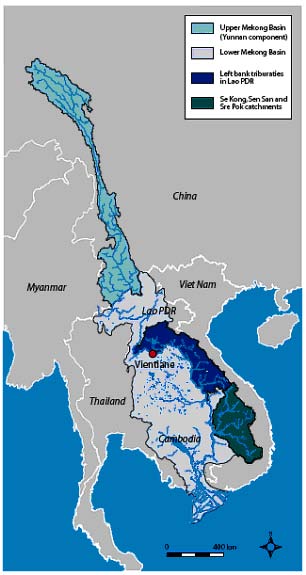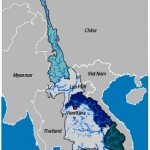
Event Review: The Environmental and Security Communities – How Do Their Evolving Concerns Overlap?
On April 22nd, The Stimson Center celebrated Earth Day with the first part of a series that will bring together experts to illuminate the connections between security and environmental issues. The topic of the discussion was “The Environmental and Security Communities: How Do Their Evolving Concerns Overlap?” The panel broached topics like the evolution of the defense community’s views on the environment and water management challenges in the Mekong Basin.
The discussion began with comments from Sherri Goodman, the Senior Vice President of CNA, a non-profit that conducts research and analysis. She opened by talking about how the Department of Defense (DoD) has changed the way it thinks about the environment and security since the early 1990s. Military leaders viewed environmental matters as waste clean-up and compliance issues – the idea that there was a link between the environment and security was a minority view.
Over time, she said, those views changed. Beginning around the time of the Kyoto Protocol, the military began to cooperate heavily with foreign militaries on environmental issues because they were considered non-threatening topics that facilitated inter-military cooperation and confidence-building in the post-Cold War era.
The director of the Southeast Asia program at Stimson, Richard Cronin, then spoke about the environmental and food security challenges presented by the construction of new dams on the Upper Mekong in China. Changing water flows affect rice production in the basin and they disrupt the natural cycles which provide the river with migratory fish. He characterized the problem as a transboundary issue that affects millions of people living in the basin in Laos, Cambodia, Vietnam, and Thailand.
The Mekong Basin is especially important in the context of Chinese power and the U.S. rebalance to the Asia-Pacific. Vietnam is caught between the security concerns in the South China Sea and the Mekong Basin – both a result of China’s newfound confidence. China’s contested claims to territory in the South China Sea are driven by the potentially vast deposits of oil and gas. That contributes to regional instability.
From there the discussion focused on the environmental-security nexus. Ms. Goodman brought up how the commander of PACOM (Pacific Command), Admiral Samuel J. Locklear (USN), stated recently in congressional hearings that climate change “will cripple the security environment.” Pacific Island nations are at risk from sea level rise, environmental changes can wreak havoc in already fragile Pakistan, and increases in food prices could lead to social unrest as was the case during the Arab Spring.
Finally, the last minutes of the discussion centered on whether the Mekong Basin countries are changing how they understand the common areas of environmental threats and security. Mr. Cronin repeated that these transboundary issues are often seen as local issues because they affect the local population. The key is to connect those local grievances with the broader civil society.
ASP has written extensively about the links between climate change, resource issues, and security. As the speakers noted, climate change is a threat multiplier that enhances the possibility of conflict and thus leads to a decrease in security.
For further reading, check out ASP’s reports such as “The Global Security Defense Index on Climate Change”, “The Dams of the Himalayas”, and the “Climate Security Report”.






